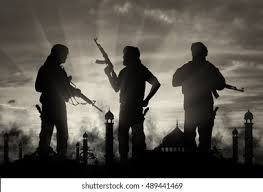SOME CIVIL SOCIETY ORGANISATIONS have stingingly cautioned former military generals and commanders over allegations that non-governmental organizations in Nigeria are aiding terrorist activities in the country.
A statement was jointly issued by the Socio-Economic Rights and Accountability Project (SERAP), Human and Environmental Development Agenda (HEDA Resource Centre), Yiaga Africa, and 70 other civil society organizations (CSOs) across Nigeria.
In the statement issued on Monday, the CSOs said they were deeply alarmed by what they described as “inflammatory and baseless claims” made by the unnamed military generals and commanders as reported on January 16, 202.
The story, titled “Why Boko Haram, Bandits Thrive: How NGOs, Others Aid Terrorists — Former Generals, Commanders,” had accused NGOs in the North-East, North-West, and North-Central regions of the country of covertly funding and supporting terrorists.
“These unsubstantiated allegations target and stigmatize the NGO sector, which has been instrumental in responding to the dire needs of communities suffering from the ongoing insurgency and banditry in these regions.
“This attempt to malign and defame NGOs is not only reckless but also completely counterproductive in addressing the root causes of terrorism in Nigeria.
READ MORE: Trump Vows to Deport Millions, Crush Illegal Immigration with Mass Crackdown
“Rather than focusing on the systemic issues that allow terrorism to thrive, the accusations irresponsibly shift blame onto organizations that have stepped into the breach left by the Nigerian state.”
The NGOs stated that they are working tirelessly to provide life-saving assistance and support to the most vulnerable populations, including displaced persons and those living in conflict zones.
The foundations stated that the North-East region had faced a terrorism crisis for almost two decades with the support of humanitarian efforts, mitigating the impact of Boko Haram and other militant groups.
“They have provided vital services such as medical care, education, food aid, and psychological support to millions of displaced people.
“These organizations operate within the framework of strict regulatory and legal guidelines, including anti-money laundering and counter-terrorism financing laws, enforced by the Nigerian Financial Intelligence Unit (NFIU) and the Special Control Unit Against Money Laundering (SCUML).
“These safeguards ensure that NGOs comply with international standards and do not engage in illicit activities,” the statement added.
According to them, the United Nations has repeatedly emphasized the importance of safeguarding humanitarian actions and actors in conflict zones.
They recalled that in its resolution 72/284, the UN General Assembly called on states to ensure that counter-terrorism measures do not impede the work of humanitarian organizations.
“Humanitarian exemptions are vital for ensuring that NGOs can operate in high-risk environments without the fear of being targeted by counter-terrorism sanctions.
“Blocking or impeding humanitarian activities is a violation of the right to life, as it directly endangers the lives of vulnerable populations,” they said.
They noted, “It is unconscionable to smear NGOs that work selflessly, often at great personal risk, to deliver much-needed aid to conflict-affected communities.
“Such baseless accusations undermine public trust, distract from the real issues at hand, and damage the critical work being done in some of Nigeria’s most dangerous and underserved regions.
“The claims made in the Vanguard article, without any credible evidence, could lead to increased attacks on humanitarian workers and further exacerbate the crisis.
“As Nigeria observes Armed Forces Remembrance Day, it is clear that the country is facing severe security challenges.
“In this context, civil society organizations have stepped up to address the humanitarian needs of affected communities.
“These NGOs continue to operate despite unprecedented difficulties, including attacks on their workers and the negative narratives being pushed against them. “This smear campaign is a grave disservice to Nigerians and weakens the country’s efforts to achieve long-term peace and stability.”






















